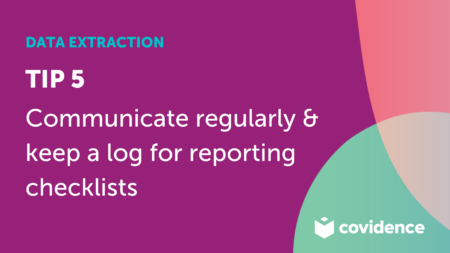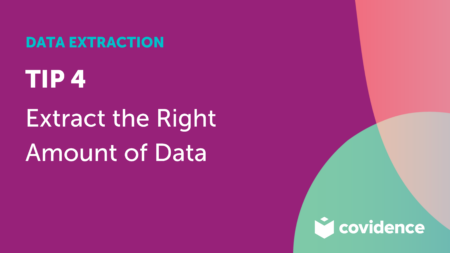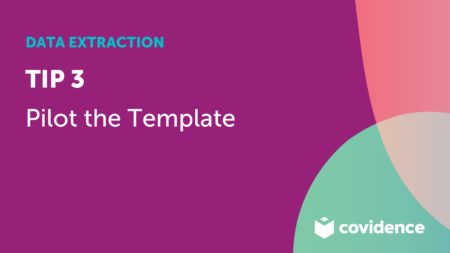Why you should make friends with a librarian.
If you are embarking on a systematic review, a librarian can be the person on your research team who can really set you up for success. We’ve invited Carrie Price, health professions librarian at the Albert S. Cook Library at Towson University in Towson, Maryland, to share some tips on building a relationship with a Librarian.
When forming a review team for a systematic review , it’s advisable to build a strong group with expertise in different areas. The U.S. Institute of Medicine, in their publication, “Finding what works in health care: Standards for systematic reviews,” recommends that the systematic review author team be “multidisciplinary, with…librarians or information specialists trained in searching bibliographic databases” in addition to subject matter experts, statisticians, and methodologists (Institute of Medicine, 2011). It’s always good to have a librarian on your side! A 2015 article by Rethlefsen, et al., found that systematic reviews “with librarian or information specialist co-authors are correlated with significantly higher quality reported search strategies.” Chances are, if you are affiliated with a university or academic medical center, your librarian is just a click away.
So how can you best prepare for working with your librarian? Here are five things you can do to create a beneficial and long-lasting professional relationship with your librarian.
Spend some time formulating your topic.
Many systematic review topics fit into the PICO framework; that is, Patient/Problem/Population, Intervention, Comparator/Control, and Outcomes. However, if your topic doesn’t quite fit that framework, that’s okay too. There are other topic development frameworks for building a viable systematic review query, like those outlined in the JBI Evidence Synthesis Manual. The more you are able to describe your topic, the better off you’ll be from the start. If you’re struggling, a librarian may be able to guide you in formulating an effective research topic.
Identify key articles.
You don’t have to do a significant amount of searching, but take a look around in a platform like PubMed, from the U.S. National Library of Medicine, and see if you are able to locate a couple of important articles on your topic. Your librarian will find them very helpful for creating an effective and comprehensive search and understanding what you want to find.
Have a draft of the protocol.
Even if you haven’t completed it yet, the protocol is helpful for your librarian to understand your topic a little better. It’s also critical to outline your inclusion and exclusion criteria from the start to minimize bias, but also to inform the search process. Don’t forget that there’s a protocol extension, the PRISMA-P, that you can use to aid in compiling a proper protocol.
Make sure you’ve planned the timeline appropriately.
Did you know that the average systematic review takes 67.3 weeks (Borah, et al., 2018)? Tools like Covidence can help reduce the time as a collaboration tool, but because of the effort involved, it’s critical to plan ahead. Your librarian will be working on other projects during the same time that they’re working on yours and will need time to create, test, translate, and run your searches. If you plan ahead and bring your librarian in from the beginning, you’ll be able to tackle each step of the process in a timely manner.
Invite librarian co-authorship.
The International Committee of Journal Editors makes a recommendation of including as a co-author anyone who has “made substantial contributions to the conception or design of the work” and participated in the drafting and revision of the manuscript. In addition to consulting on the search, many librarians are prepared to assist you with the search methods section and elements of the PRISMA Flow Diagram.
During and after your consultation, the librarian will take an initial look at the literature to make sure that no recent systematic reviews have been published about your topic. They will also use your identified key articles to create a robust literature search. They’ll probably ask you some questions, such as: How do you plan to perform the screening? What citation management program do you prefer? After the searches are translated and completed, the librarian may deduplicate the results and send you the file of results so that you can get started on title/abstract screening.
Librarians are an invaluable member of a systematic review team, making significant contributions to a robust, high-quality, reproducible search, and consulting on citation management and the search methods. If you’re ready to do a systematic review, make friends with your librarian. You won’t be sorry!
References
Aromataris E, Munn Z (Editors). JBI Manual for Evidence Synthesis. JBI, 2020. Available from https://synthesismanual.jbi.global. https://doi.org/10.46658/JBIMES-20-01
Borah, R., Brown, A. W., Capers, P. L., & Kaiser, K. A. (2017). Analysis of the time and workers needed to conduct systematic reviews of medical interventions using data from the PROSPERO registry. BMJ open, 7(2), e012545. https://doi.org/10.1136/bmjopen-2016-012545
Institute of Medicine (US) Committee on Standards for Systematic Reviews of Comparative Effectiveness Research, Eden, J., Levit, L., Berg, A., & Morton, S. (Eds.). (2011). Finding what works in health care: standards for systematic reviews. National Academies Press (US). https://doi.org/10.17226/13059
International Committee of Medical Journal Editors. (N.D). Defining the Role of Authors and Contributors. http://www.icmje.org/recommendations/browse/roles-and-responsibilities/defining-the-role-of-authors-and-contributors.html
National Library of Medicine. PubMed [platform]. https://pubmed.ncbi.nlm.nih.gov/
Page, M. J., McKenzie, J. E., Bossuyt, P. M., Boutron, I., Hoffmann, T. C., Mulrow, C. D., … & Moher, D. (2021). The PRISMA 2020 statement: an updated guideline for reporting systematic reviews. BMJ, 372. https://doi.org/10.1136/bmj.n71
Rethlefsen, M. L., Farrell, A. M., Osterhaus Trzasko, L. C., & Brigham, T. J. (2015). Librarian co-authors correlated with higher quality reported search strategies in general internal medicine systematic reviews. Journal of Clinical Epidemiology, 68(6), 617–626. https://doi.org/10.1016/j.jclinepi.2014.11.025



